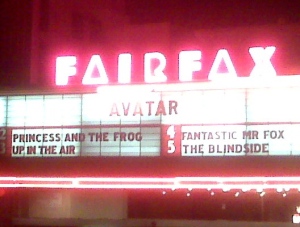Cory Doctorow over at Boing Boing links to this Metafilter item on Why Your Idea to Save Journalism Won’t Work (A Checklist). (An anonymous commenter points to the origin of the checklist, over at Slashdot.)
Your post advocates a
( ) technical ( ) legislative (X) market-based ( ) crowd-sourced
approach to saving journalism. Your idea will not work. Here is why it won't work. (One or more of the following may apply to your particular idea, and it may have other flaws owing to the avaraciousness of modern publishers.)
( ) It does not provide an income stream to the working journalist
( ) Nobody will spend eight hours sitting in a dull council meeting to do it
( ) No one will be able to find the guy
(X) It is defenseless against copy-and-paste
(X) It tries to prop up a fundamentally broken business model
(X) Users of the web will not put up with it
( ) Print readers will not put up with it
( ) Good journalists will not put up with it
( ) Requires too much cooperation from unwilling sources
( ) Requires immediate total cooperation from everybody at once
(X) Many publishers cannot afford to lose what little business they have left
( ) Anyone could anonymously destroy anyone else's career or business
( ) Even papers run by trusts and charities are already going bankrupt
Specifically, your plan fails to account for
(X) Readers' unwillingness to pay for just news
( ) The existence and popularity of the BBC
(X) Unavoidable availability of free alternatives
( ) Sources' proven unwillingness to "go direct"
( ) The difficulty of investigative journalism
( ) The massive tedium of investigative journalism
(X) The high cost of investigative journalism
( ) Unpopularity of weird new taxes
(X) Editorial departments small enough to be profitable are too small to do real reporting
( ) Legal liability of "citizen journalism"
( ) The training required to be even an rubbish journalist
(X) What readers want, in the main, is celebrity and football
( ) The necessity of the editing process
(X) Americans' huge distrust of professional journalism
( ) Reluctance of governments and corporations to be held to account by two guys with a blog
( ) Inability of two guys with a blog to demand anything
( ) How easy it is for subjects to manipulate two guys with no income
( ) Rupert Murdoch
( ) The inextricably local nature of much newsgathering
( ) The dependence of all other forms of news media on print reporting
( ) The dependence of national press on local press reporting
( ) Technically illiterate politicians
( ) The tragedy of the commons
( ) The classified-driven business model of much print publishing
(X) The tiny amounts of money to be made from online ads for small sites
and the following philosophical objections may also apply:
( ) Ideas similar to yours are easy to come up with, yet none have ever been shown practical
( ) That the US press dropped the ball on Iraq is a symptom, not a cause
(X) Print advertising pays so well because advertisers *can't* work out the return they're getting.
( ) Information does not want to be free
(X) Society depends on journalists producing news that few readers are actually all that interested in, quite honestly
( ) That your friend was misquoted once in a paper does not mean journalism is bunk
( ) Everybody reading the same story is a feature, not a bug
( ) Having a free online "printing press" doesn't turn you into a journalist any more than your laser printer did
(X) Wall Street won't allow newspaper groups to back off from 20% profit margins
(X) Newspaper executives are second only to record industry executives for short-sighted idiocy
(X) E-paper still doesn't give publishers back their ad monopoly and hence its revenue
(X) You can't charge for online content unless all your competitors do it too, all at once.
( ) Ethics are hard to hold up when your bills are due
( ) Citizen journalists are almost as good as citizen dentists
( ) "Gatekeepers" can help keep out undesirable things
(X) Publishing less often makes you even less relevant
( ) Feel-good measures do nothing to solve the problem
( ) Free society depends upon a free press
( ) Democracy is bad enough with the press we've already got
( ) You think print is bad? Imagine Fox News, as a blog. That's what your idea will turn into.
( ) Reader-generated content is to professional news what YouTube is to big-studio movies.
(X) Have you read the comments on news websites? They make YouTubers look like geniuses.
( ) You are Jeff Jarvis
( ) Or Dave Winer
Furthermore, this is what I think about you:
(X) Sorry dude, but I don't think it would work.
( ) This is a stupid idea, and you're a stupid person for suggesting it.
( ) Nice try, assh0le! I'm going to find out where you live and burn your house down!





